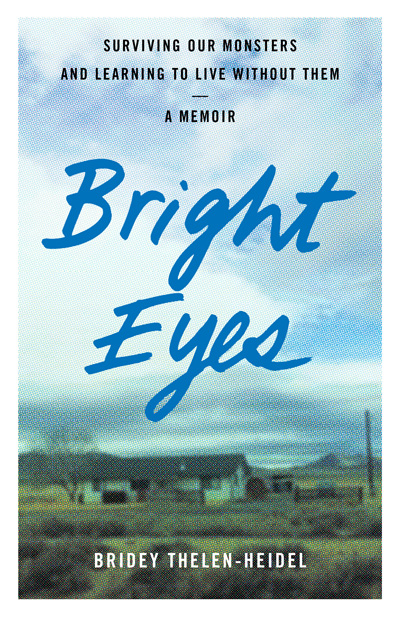
Estimated reading time: 6 minutes
A traumatic childhood leads one woman to end all contact with her mother while she struggles to find forgiveness
—
I stopped picking up the phone.
Stopped calling her back when she slurred ugly messages on my answering machine. Blocked her email. And, when Facebook became a thing a few years later, I blocked her there, too.
The last time I saw my mom was at my daughter’s first birthday, twenty-two years ago. I’ve never regretted the choice to go “no contact” with my mother because I’d spent my life being “full contact,” and it nearly killed me.
Literally.
A mother like mine didn’t protect her young because she couldn’t even protect herself. Night after night, my body blocked the monsters my mother moved in with us — their rage, their fists, their heavy boots. Day after day, my body cleaned up the mess — the smashed glass and broken people.
Leaving was hard because I suspected everything would fall apart.
It did.
But staying was harder because nothing in my life could begin while I was fixing hers.
At my daughter’s first birthday, my mother took another opportunity to warn me that Hannah was going to hate me the way I hated my mom. And just like that, I saw the generational pattern: I had chosen my grandmother over my mom, and my mom had chosen her grandmother over her mom. Now, it was Hannah’s turn to carry that toxic torch being passed to her at only a year old.
No.
Although I’d attempted to sever ties with my mom over the years — sometimes for months — it was the warning at the birthday party that finally did it.
I didn’t make an announcement or share my plans with my mom. I just stopped picking up the phone. Eventually, word got to her from one of my sisters, and my mom stopped calling. Maybe I thought she’d fight for us — beg me to talk to her, beg for my forgiveness, beg to know my daughter.
She didn’t. Not once in the past two decades has she sent a message of apology. Not once did she send so much as a birthday card to my daughter. Like a little girl holding the string on a helium balloon and accidentally letting it slip from her fingers, my mom must’ve figured there was no way to get me back, so she just watched me float up, up and away…
Two years later, I buried my mother — alive.
My first dad died from a stroke, and I was so angry the universe let a good man die while my mom got to live that after my dad’s memorial service, I held my own for my mom. A small service with only me in attendance, I grieved my mother — the one I loved when I was a little girl who didn’t know any better, the one I begged to love and protect me, and the one who never did.
Now that she was dead, it was easier to stay away because my mother was now a ghost — one I talked to, shouted at, cried with, and silenced whenever I wanted to.
My mother, though, didn’t know she was dead to me and an email got through.
After the initial shock, I considered her request to meet at the zoo midway between our two towns.
Thankfully, she asked a question that reminded me why I’d buried her. “Are you sure you want Hannah to meet me because she’s going to love me and wonder why you’ve kept us apart?”
I deleted the email and didn’t shed a single tear.
Eventually, I explained to my daughter why she didn’t know my mom. A copy of The Glass Castle started the conversation when Hannah was ten and gave her a snapshot of what growing up in chaos and craziness was like.
Although I was scared to death, was I destined to be a mom like mine? My gentle husband parented with me, my loving mother-in-law answered my questions, and my intuition reminded me: Do exactly the opposite of what your mom did, and you’ll be a great F’ing mother!
(Un)forgiven
For several years following my mother’s memorial, I had decided what she’d done was unforgivable. Then, I became sick. There were doctors’ visits and hospital stays for an esophagus sealed shut by scar tissue, cysts crowding my uterus, a failed gallbladder, and other illnesses running rampant through my body.
This was decades before anyone was talking about CPTSD and the effects of holding unresolved trauma in our bodies, so I was as clueless as doctors about why my systems were shutting down at thirty-three years old.
An acupuncturist asked the question no doctor had. “Is there a chance you’re holding onto any anger? Maybe trauma in your past you haven’t let go of?”
When I answered yes, he prescribed — among other remedies — forgiveness.
I would’ve rather swallowed poison.
Desperate to understand how you forgive monsters, I turned to Oprah. “Thank you for giving me the experience,” she said on her show. I adore Ms. O, but I wasn’t feeling it.
Eckhart Tolle suggested I learn from those I needed to forgive. Too evolved. Oprah’s go-to guru for all things female empowerment, Iyanla Vanzant, gave me permission to be pissed at the people who hurt me. Agreed but still wasn’t closer to understanding how or why I should forgive. John Edward, a psychic-medium, warned in his book that if we don’t forgive people who’ve hurt us in this lifetime, we might spend another one with them.
Oh, hell no.
Forgiveness happened in the bathtub. Hot water, wine, and candlelight lulled me into what felt like watching a movie of my mom’s young life. Seeing her at various ages — with pigtails and pom poms — I wondered what happened to turn her dreams that couldn’t have included being a narcissistic abuser of her own children. A tinge of compassion crossed my heart just long enough for me to release myself from the expectations I had of that little girl, and from the need to know what happened because it didn’t matter anymore. The past was not the present, and our memories would no longer control my life.
That release wasn’t to let my mom off the hook; it was so I stopped hanging on to all the wrongs I wanted her to make right. I exhaled and let our memories together out — floating up, up and away like I had from her years before.
I didn’t forgive the monsters — the men who took everything from us — because I didn’t care about them. One is dead now, and the other close enough to it.
Healed.
You may also enjoy reading Becoming Myself: Making Peace with a Traumatic Childhood, by Roberta Kuriloff.
